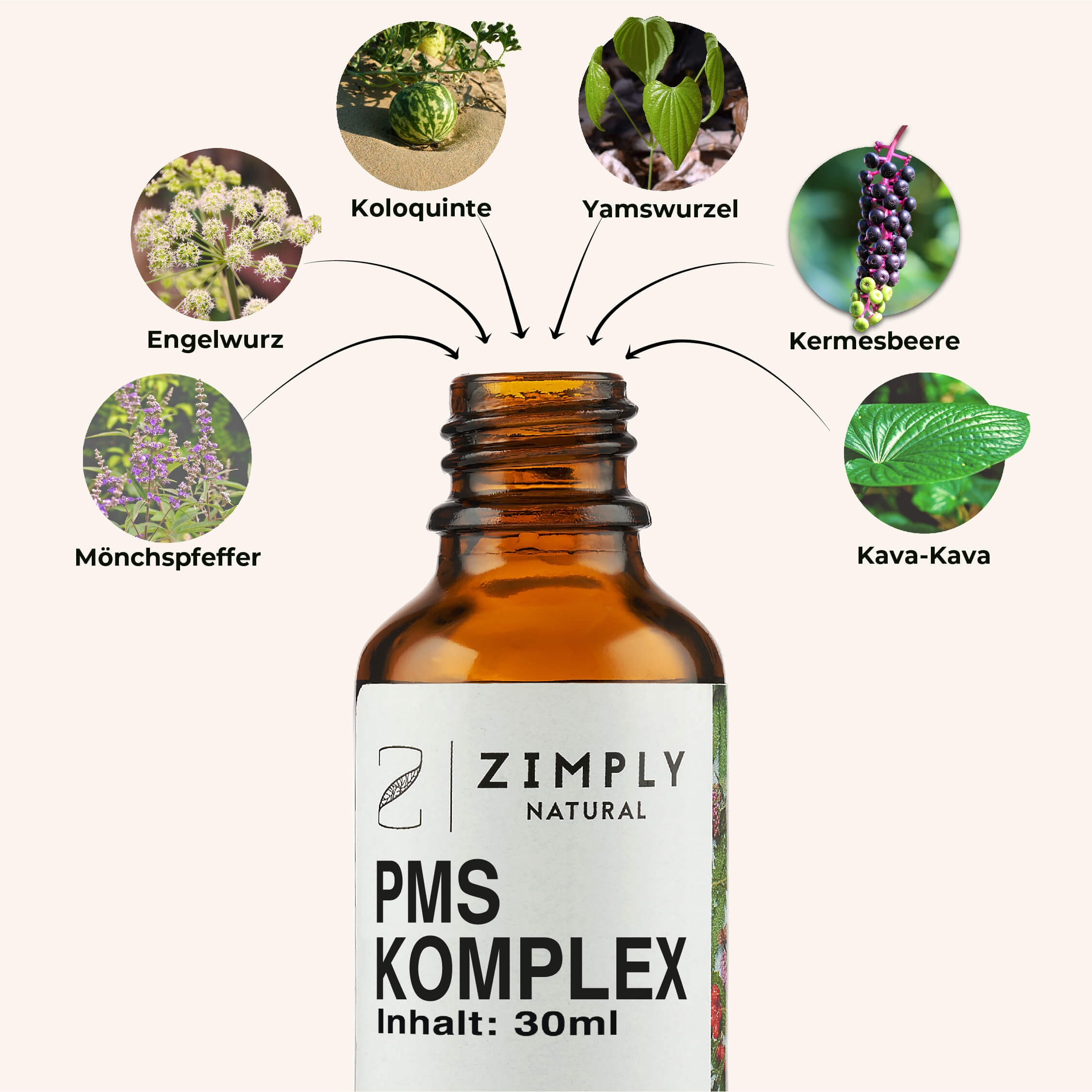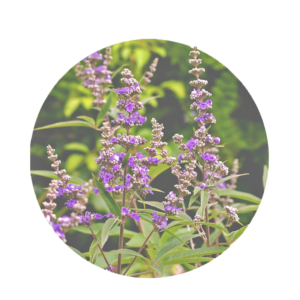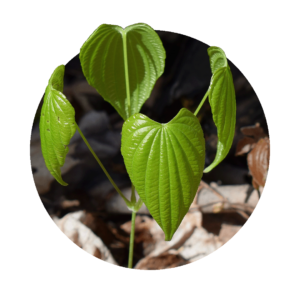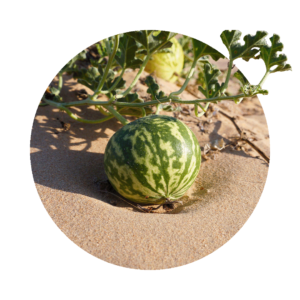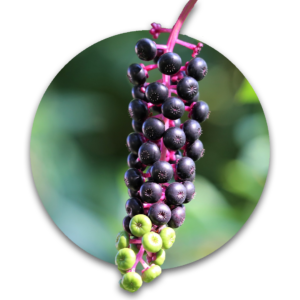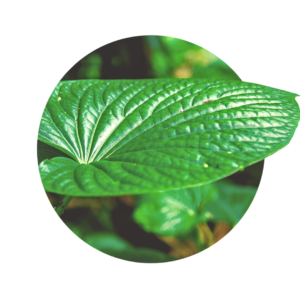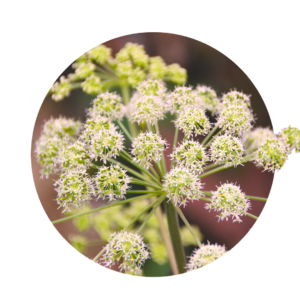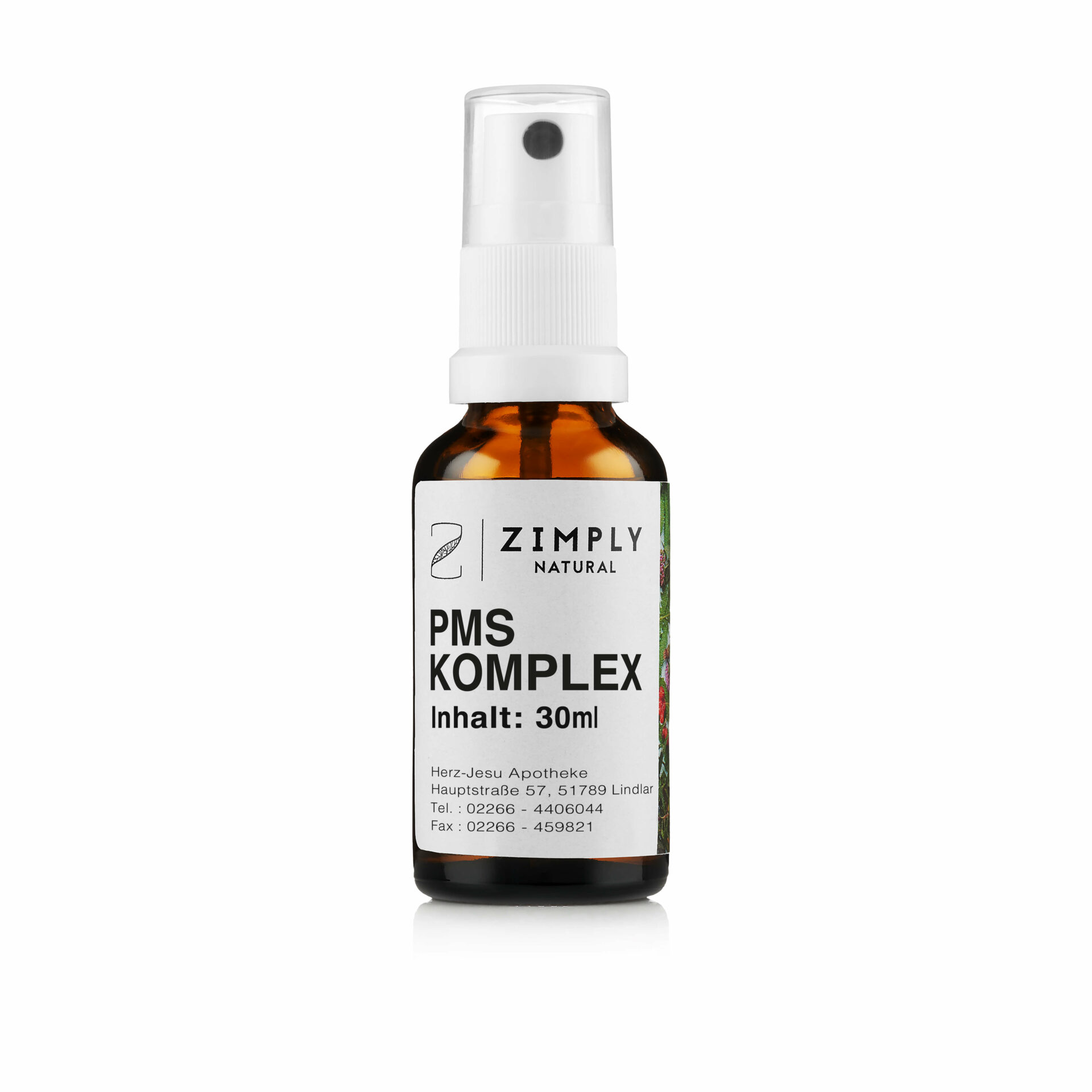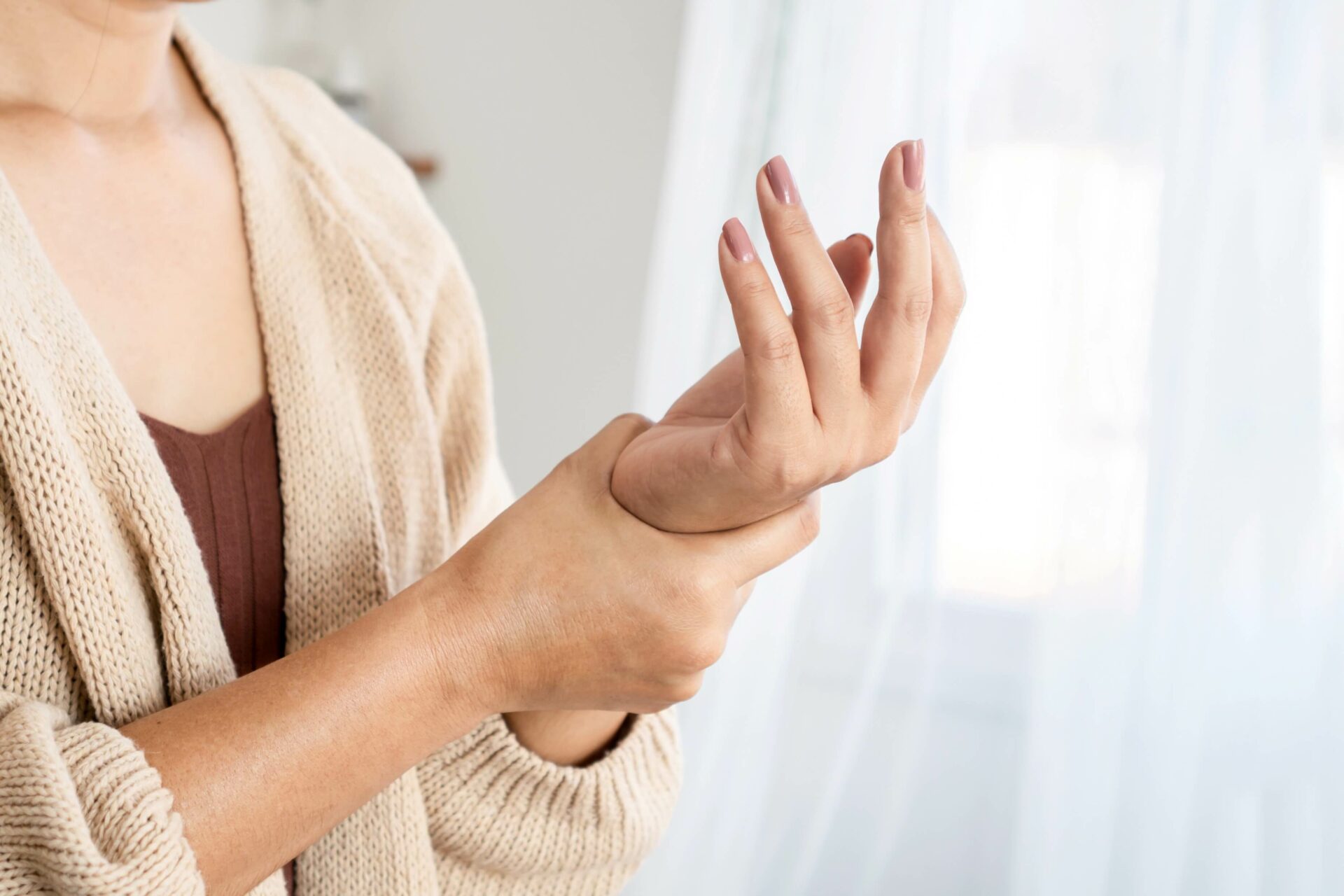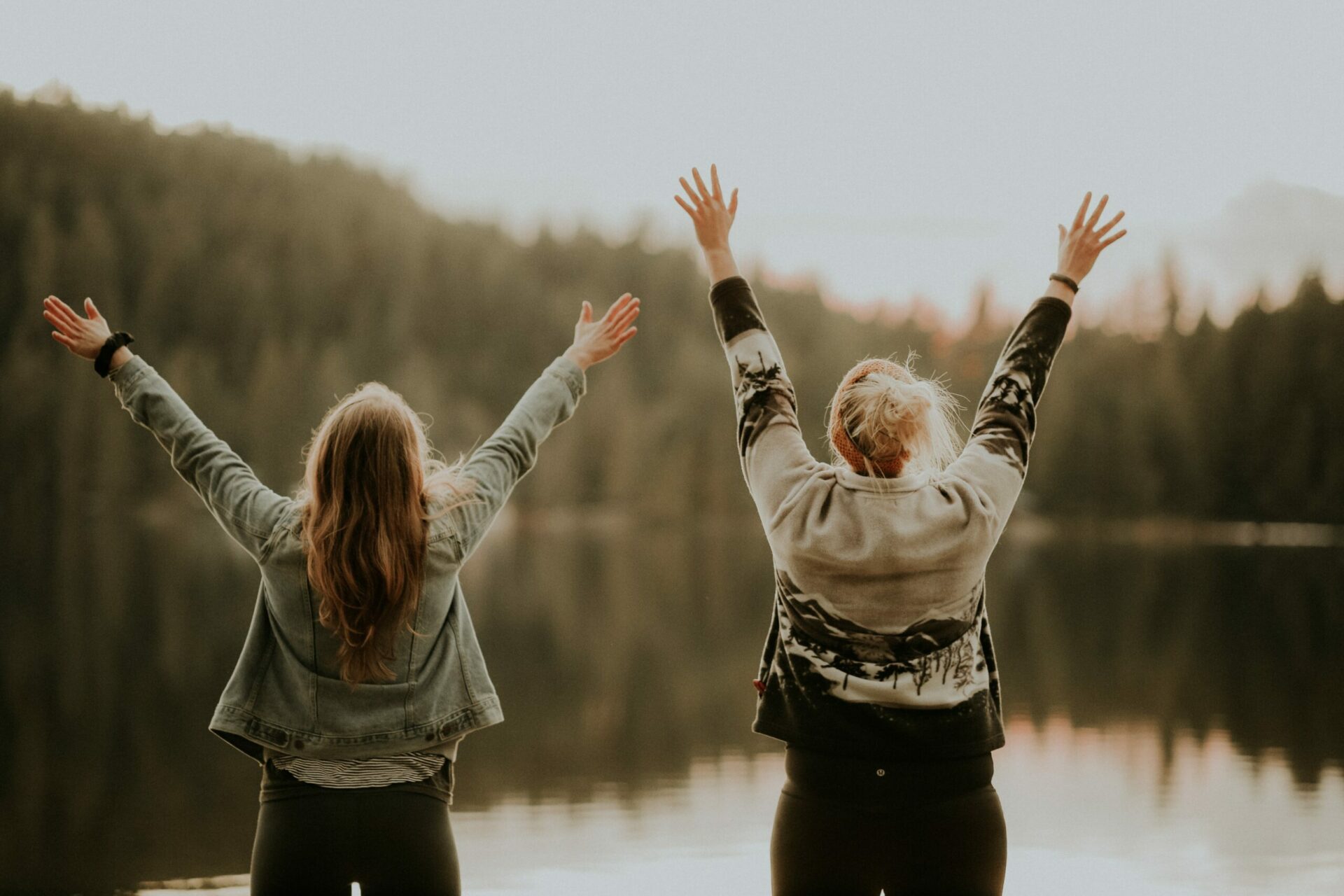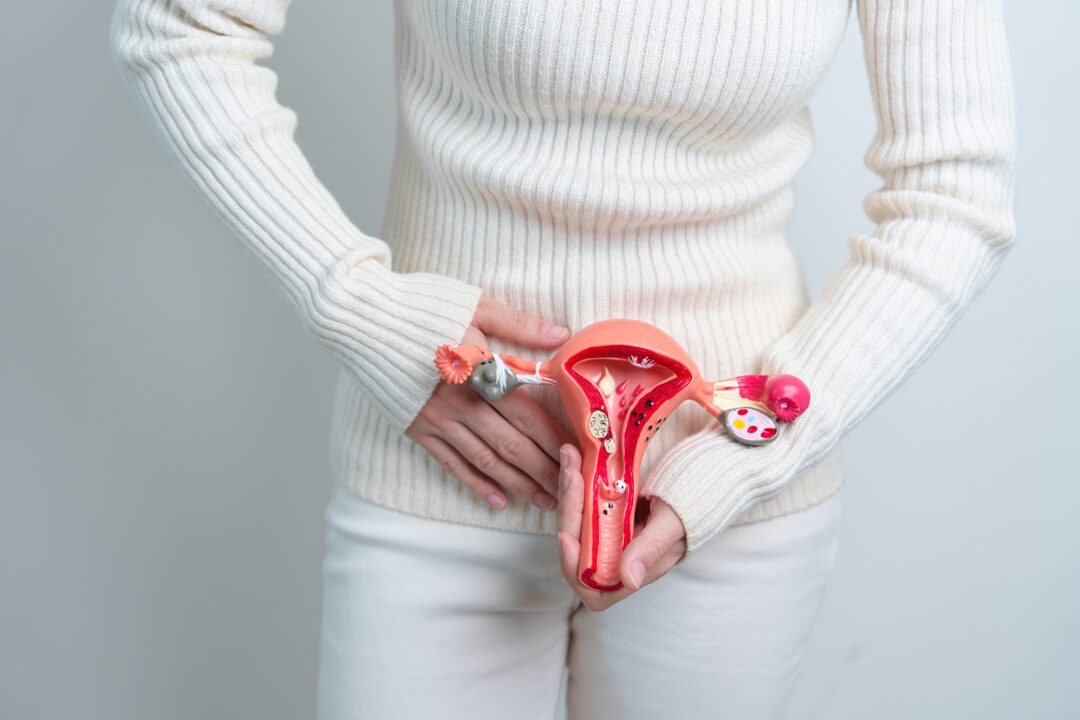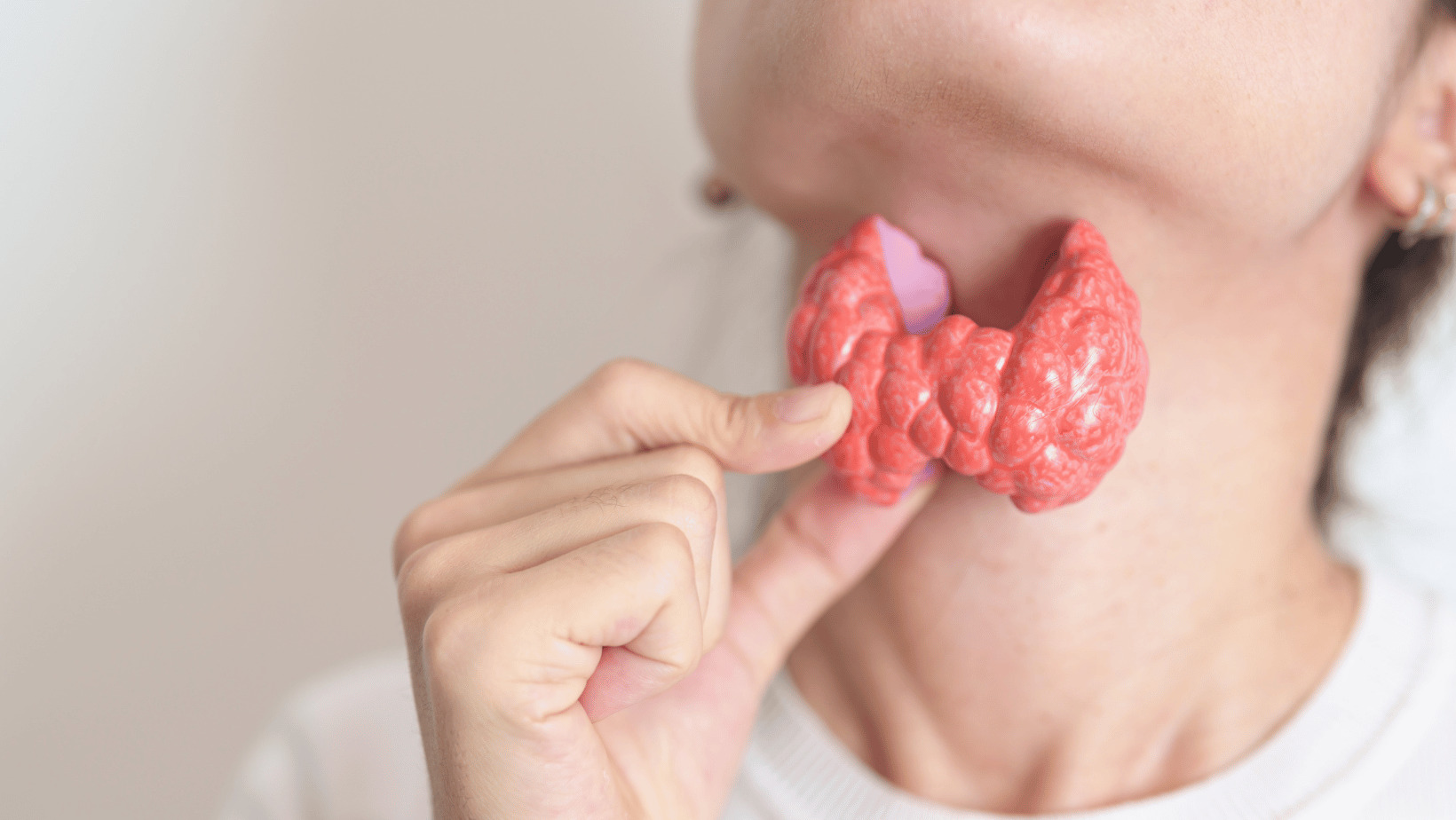Many women know it - two weeks until the start of your period and you're already not feeling well. You are more tired, more irritable and have trouble sleeping. If this sounds familiar, it could very well be that you are suffering from premenstrual syndrome, or PMS for short. But what exactly is it anyway and are there ways you can treat and improve it naturally? If you're wondering, you've come to the right place.
With natural methods, such as the individual spagyric mixtures from Zimply Natural, complaints can be treated and sustainably alleviated.
What actually is PMS?
You know, your Period and your body knows it too and adjusts to it. This process can also be noticeable for you, for example through abdominal pain or irritability. This phenomenon is called premenstrual syndrome and about 20 to 50 percent of women of childbearing age suffer from it. So you see, you are not alone in this, even if it sometimes feels like it. PMS is actually quite natural and affects every woman differently. There are several possible effects and causes of PMS, which we will introduce to you below. With this article, we want to give you a few tips and natural approaches and show you that you are not alone with these problems.
Research has shown that women are more likely to have a higher risk during their Menstruation partially have an increased preference for the color red.
What are the PMS symptoms?
These are the physical symptoms of PMS
You have abdominal pain and headaches and you don't know where they come from? If it's still a week until your period, maybe you have PMS. What else can occur in the way are flatulence and a nasty migraine. It can also be that your breasts are tense or even painful. Other common symptoms are sleep disturbances and changes in appetite. It may be that you don't really like bell pepper chips, but these days there is nothing that tastes better to you. Even if you haven't done any exercise and don't have a fever, your whole body may hurt, which of course reduces motivation for exercise. PMS actually also sometimes leads to water retention, so your favorite pants are suddenly a little too tight around your belly. This is annoying, of course, but after your period the water retention usually disappears.
The influence of PMS on your psyche
You're in the best mood, but then one of your flowers snaps off and it's the end of the world? Yes, that is also a symptom of PMS, namely the infamous mood swings. These are a symptom of your period, of course, but they can also occur before. You may also be unusually irritable during the premenstrual phase, and rather small worries may seem like huge elephants in the room. In addition, there is often a lack of energy, which can quickly turn into depressive moods. Here you feel isolated from the outside world and even the smallest things seem like huge mountains that you have to climb. You really have to concentrate at work tomorrow, but you already realize that your concentration leaves something to be desired? Now you are stressing yourself and of course you can't sleep well. This can all be part of PMS, but why do you have it in the first place?
The causes of PMS
The influence of the menstrual cycle
Your menstrual cycle can be divided into two main phases: the follicular phase and the luteal phase. During the first phase, an egg matures and estrogen, the happiness hormone, is released more frequently. This can make you feel happier and more energetic. When this phase turns into the luteal phase about two weeks before your period, the hormone progesterone is released, which can cause the first symptoms of PMS. If there is now no pregnancy, the hormone level drops again and all these fluctuations cause confusion in the brain. This is where mood swings typically occur. But the whole thing can affect not only your mood, but also your body, which can manifest itself in water retention, abdominal pain and cramps. As soon as your menstruation starts, however, the symptoms of PMS should usually disappear again.
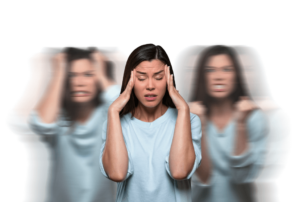
What role do neurotransmitters play?
Serotonin is a neurotransmitter responsible for mood regulation and well-being. When serotonin levels decrease, the exact opposite can occur, and that is irritability, Anxiety and mood swings. During your menstrual cycle, this happens in the luteal phase, because when progesterone is released, serotonin levels may decrease. Another neurotransmitter that can have an impact on your premenstrual pain is dopamine. During the menstrual cycle, dopamine levels can fluctuate and since this neurotransmitter is responsible for the reward system, it can falter. So it can lead to Craving to certain foods that your brain perceives as cheering you up, i.e. as "comfort food". The GABA neurotransmitter actually has a positive effect, namely a calming effect on your brain. However, if it is released more frequently during the luteal phase, this can lead to fatigue and Lack of energy lead.
What else can have an influence on your period pain

In fact, genetics also play a role in PMS. If your mother or grandmother suffer or have suffered from PMS, then you are more likely to experience symptoms as well. Your lifestyle can also have an impact on your PMS symptoms. High consumption of salty and sugary foods can increase the effects, while plenty of exercise and relaxation exercises can alleviate PMS. Stress is never good - and neither is PMS. If you Anti-Stress your body releases cortisol and this leads to another hormonal fluctuation that your body and brain have to cope with.
some women with PMS have a preference for chocolate during this time. Dark chocolate contains serotonin precursor amino acids that can stimulate the production of the "happy hormone" in the brain.
How PMS and PMDS differ
If you're familiar with PMS, you may have heard of PMDS, or premenstrual dysphoric disorder. Whereas with PMS you have tolerable pain that is annoying but doesn't limit you in your daily life, sufferers of PMDS have incredibly severe pain and symptoms. These include severely depressed moods, severe anxiety, and pain in the abdomen, head, or chest. All of these effects can take a toll on daily life and overall well-being. So it is not surprising that women suffering from PMDS often need medical help and treatment. So, in summary, PMS and PMDS differ mainly in the severity and impact of symptoms.
How can you better deal with PMS?
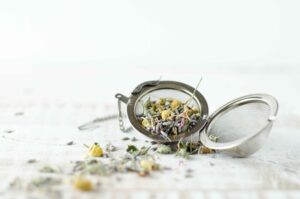
Typical tips against your PMS symptoms would be, for example, a lot of exercise, a healthy diet and a lot of relaxation. But what if these tips don't help you? Then we have a few natural home remedies for you that you can try. Moreover, they can be a super supplement for the previously mentioned tips. To relieve stomach pain, you can try herbal teas. These are not only good for your tummy, but also for a general relaxation of your body. One medicinal plant that can have a very special effect is the Monk's pepper. During PMS, all of your hormones are in disarray, so this herb is a great fit because it can help regulate hormone balance. It is also possible that it can relieve your irritability and breast pain.
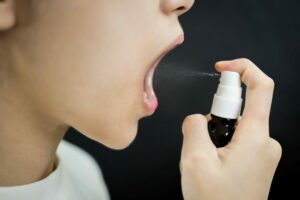
The application of your PMS sprays is, by the way, very simple: The spray is simply sprayed into the mouth according to the dosage instructions given on the vial. In order to achieve the best possible effect and to be able to optimally counteract the causes, we recommend use over a longer period of six to eight weeks. As a kind of cure, you spray 3×3 sprays daily.
How to prevent PMS
To prevent PMS, you can start in many places. The first is your diet, because here you should make sure to reduce sugary and salty foods. Instead, try to eat plenty of fruits, vegetables, lean proteins and whole grains, which provide important nutrients. Of course, plenty of exercise also helps your body to work out as well as relax, and to prevent PMS it is also very good. Now you may think that you don't have enough time to exercise effectively, but we can reassure you: even exercises like walking or a little yoga can have a positive effect. Something you may not have heard of is the use of a symptom diary. Here you can write down everything you feel or have done, because this way you can find possible triggers for certain symptoms.
it may be that some women are more creative than normal during premenstrual syndrome? This could be due to increased brain activity in certain areas.
These medicinal plants can help you cope better with PMS
PMS usually comes hand in hand with physical & psychological symptoms and costs many women a lot of quality of life month after month. It brings discomfort, complicates relationships and clouds the mood. Monk's pepper is the light at the end of the dark tunnel and brings you back to your center. It also helps your body regulate hormonal balance.
PMS is the sum of symptoms that can occur during hormonal imbalance in the days before menstruation. These usually include mood swings, breast tenderness, water retention and abdominal cramps. The cause is often very low progesterone levels. Since the Yam acts similarly to progesterone, these symptoms disappear and the period can begin and proceed in a more relaxed manner.
The Coloquinte can inhibit your cramps during PMS and reduces the tendency to these cramps. It relaxes the muscular structures and thus weakens the symptoms.
An unpleasant side effect of PMS can also be flatulence. Often, flatulence is caused by constipation, where the stool remains in the intestine for too long. The Pokeweed stimulates the flow of bile and has a mild laxative effect. As a result, the stool leaves the intestine faster, no longer causes flatulence and digestion relaxes again.
Piper methysticum is known for its strong antianxiety and sedative effects. Its effect on the body has been compared to that of benzodiazepines, but it does not cause any greater side effects than some other drugs when taken in the short term. Of all the herbs, kava kava has a particularly impressive anxiety-relieving effect - both mental and physical muscle tension can be relieved after ingestion! In addition, this natural remedy also has an energizing effect due to its stimulating properties - an important benefit that is often overlooked when treating anxiety and tension.
Tea or tinctures of angelica have the property of stimulating both the formation of gastric acid and bile, which can lead to less flatulence. The consequences of PMS are also often severe fatigue, exhaustion and listlessness. Angelica supports the liver metabolism with its bitter substances and coumarins to break down the stress hormones better and faster. The liver is relieved and works better, the person feels fitter again.
Zimply Natural - Your natural booster against PMS
With Zimply Natural, we are the antidote to painkillers, sleeping pills, and standard medications. We are your medicine! For our mixtures we use the centuries-old natural healing process of spaygrik back. The Spagyric combines the herbal active ingredients and phytotherapeutic elements of the HealingplantsThe mineral salt qualities, as well as the subtle information of the medicinal plants and the energetic potential of the Bach flowers.
With natural methods, such as the individual spagyric mixtures from Zimply Natural, your complaints can be relieved naturally and sustainably.
FAQ: Questions and answers about PMS
Can men also have PMS?
Yes, men can also have symptoms of PMS. The hormone responsible for this in men is testosterone. While in women aldosterone falls and rises in a 28-day rhythm, testosterone levels fluctuate daily. It is high in the morning, balanced at midday, and low in the evening. Although men do not suffer from the same symptoms as women, it is not unlikely that men also experience PMS. This could manifest itself, for example, in cravings and hormonal fluctuations.
Does premenstrual syndrome get worse with age?
In fact, it's impossible to say for sure. Researchers have found that PMS is most likely to occur in women between the ages of 30-40. In addition, new PMS symptoms may appear or existing symptoms may get worse before menopause. If the Menopausal symptoms and with them your period ends, PMS also disappears.
When should you see a doctor?
Of course, you can always see a doctor if you want to clarify your symptoms. But when should you definitely see a doctor and have yourself examined? At the latest when you can no longer perform your everyday tasks due to your symptoms. In this case it is possible that you suffer from PMDS and this should be clarified by a doctor in any case. He will then examine you and let you note your symptoms, so that a solution can be found.



